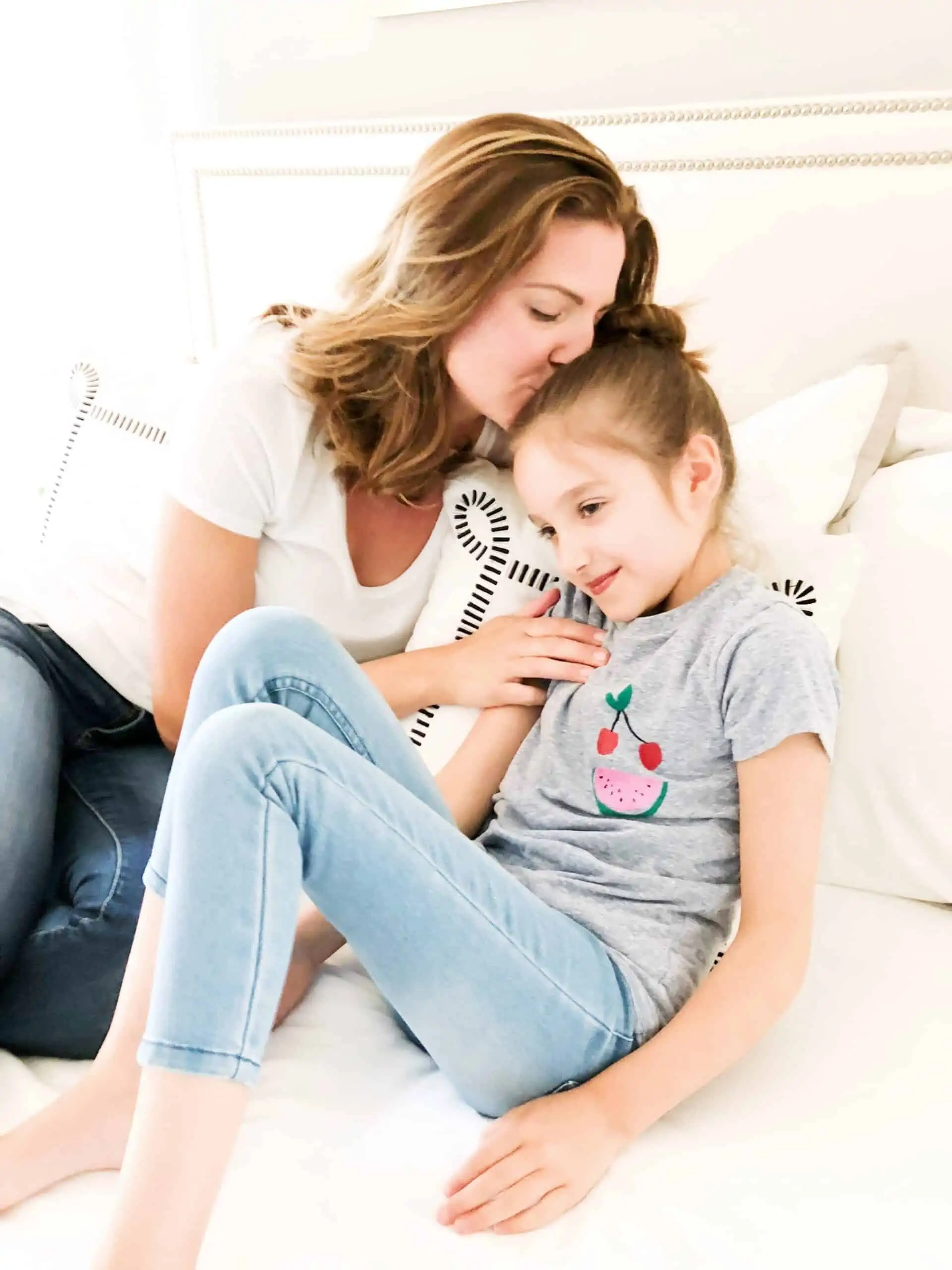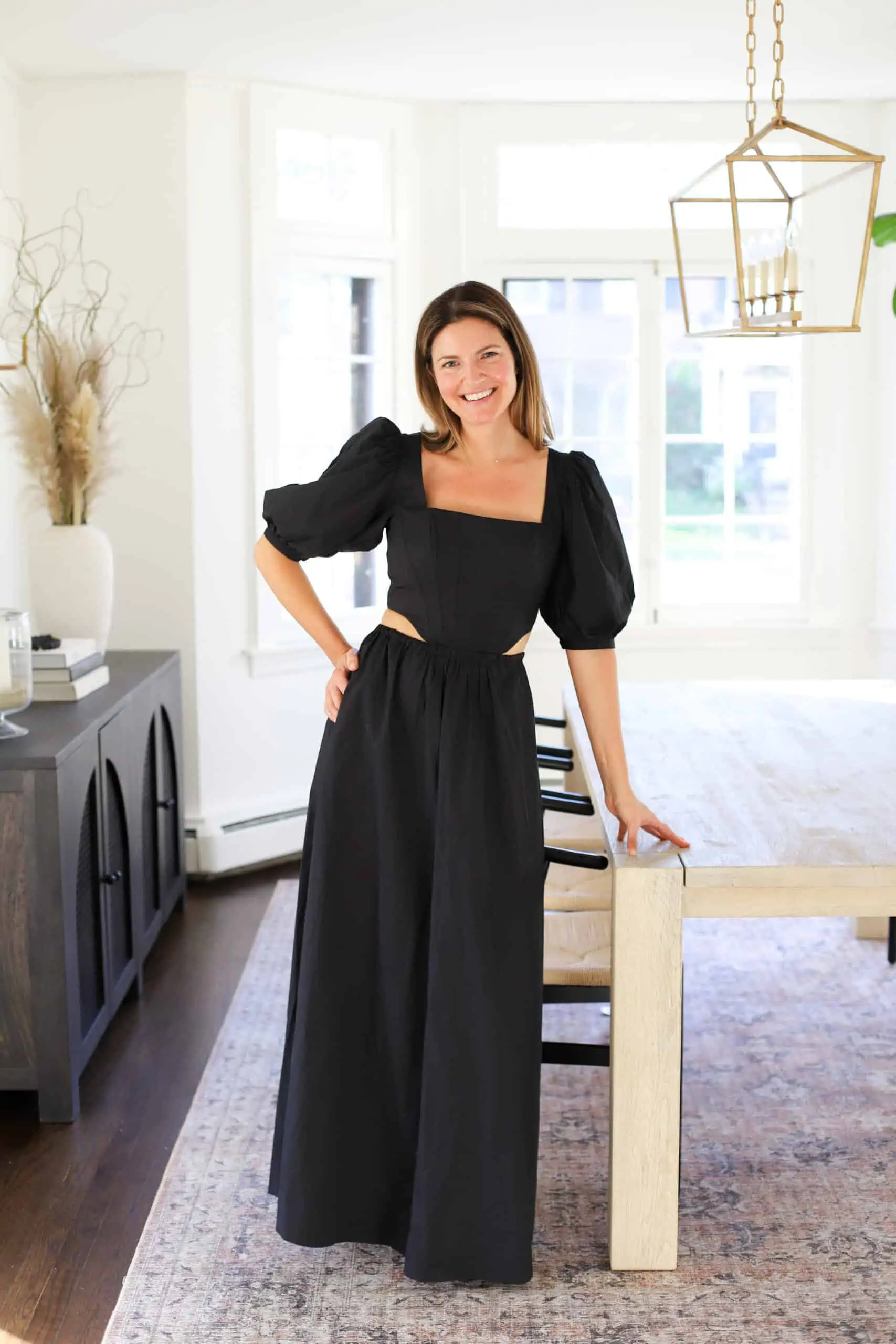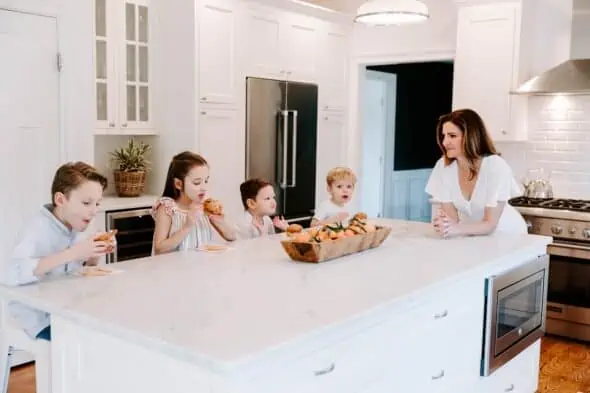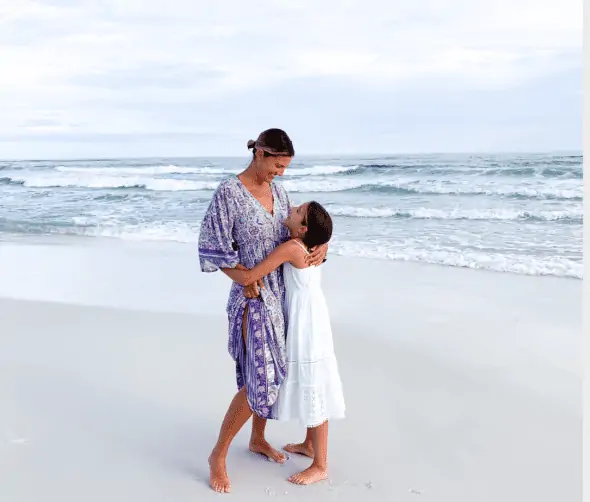
loving her exactly as she is
It can be so easy with social media to see a snippet of someone’s life and think they have it all together. Maybe they’ve only shown you a small window into their world, or a small curated version, but either way, I think it can be hard to get a complete picture.
When I started this blog, my intention was to be as transparent as I could with my life, and my family. But as I look back at the picture I’ve portrayed about our family, I realize there’s a component I haven’t shared, or been as open about as maybe I could have been.
I’ve hesitated sharing any of this on the blog before. I’m not sure why. Maybe shame, or fear of how people will perceive me or my kids. Regardless though, I think it’s important I share that our life isn’t always rainbows and unicorns.
My daughter, our daughter, Lillian, struggles with sensory issues. Something that’s taken a while for JonPaul and I to understand.
For those of you who aren’t familiar with sensory issues, it essentially means that Lillian has a harder time feeling comfortable in her body. She seeks out more input. But more importantly, when she’s feeling “out of sorts” physically in her body, she feels “out of sorts” emotionally too. Something I can relate to more than you know. As a woman who needs her own type of “input” of “go, go, go” before she can sit and relax, I can relate to our daughter in more ways than I ever expected.
We first learned about Lillian’s sensory needs a few years back, the exact time we were moving to the east coast. So, it wasn’t the best of times. Fortunately, we found a wonderful occupational therapist in Connecticut who helped us better understand Lillian and what she needed. We followed a special “sensory diet” (dry brushing in the am, specific pressure massages) and saw such a change. It was as if a lightbulb had gone off.
We learned that Lillian would be triggered by things like diet, sleep, environment, and routine. Things that didn’t faze our other three children, affected her in different ways. So, we became more aware and conscious of those things that weren’t previously on our radar.
More importantly though, Lillian began to understand her body and emotions more. Together we had a system that worked for us, and she was (and is) doing great. In many ways, I think that we had almost forgotten about her sensory issues. She was doing so well; I think I naïvely thought that her sensory issues were something we had “cured”. Something we managed out of. A box I could check.
I’m starting to understand however, that her needs aren’t something that go away, but rather come and go in waves triggered by different situations or environments.
So, it shouldn’t have been a surprise that our recent move triggered Lillian to have some emotional days. Lack of routine, structure, sleep and poor diet; all things that can affect even the most stable adult, affected our little girl.
My heart felt so broken. Not because I was frustrated with her, but more because I was frustrated with myself.
Seeing some of these issues reappear was so deflating. As if somehow I had caused it, not managed it, her, the move, you name it – well enough. I had failed her.
Could I have seen this coming? Did we not prepare her? Should we have tried to have had more structure?
As much as I found myself questioning my actions, even more so, I found myself wanting to protect her.
I saw the way people would look at her when she was having an “emotional moment” in public, or struggled socially. I saw the way eyes would quietly linger, and people kept their distance. I knew the narratives that were running through their heads. I knew what their silence meant at the park that day when I struggled to calm her. Or the jokes people would say, only trying to lighten to mood, but actually making me feel worse.
In a flash of a moment, I could see her get judged and categorized and misunderstood and I would find myself getting so angry. I wanted to shout from the rooftops that “this isn’t her”, “this isn’t her fault”.
I want to explain all the moves, and changes, and new babies, and lack of structure. I want to explain that these same “emotions” that are making her vulnerable in this moment, are also the exact emotions that make her strong, and brave, and confident.
I want to say, “please give her a chance. Please see past this. Past this moment, and see all the good.”.
But instead I stay quiet, with my heart racing and my palms sweaty, trying to calm my daughter while simultaneously carrying around a load of worry. Worry about her, how I missed these cues, what people think. All of it.
I’m trying my best though, to remember that I can’t control how Lillian’s emotions affect her. I can’t control whether she has a good day or bad day. I can’t control what the world thinks of her, or even what she thinks of herself. That is simply out of my hands.
What I can control however, are the situations I put her in. The way I manage our daily routine and schedule. I can control the way I speak to her in those emotional moments reminding her that it’s not her fault and that she’s safe. I can control how I handle myself, and how I respond in those trying moments.
And most importantly, I can love her, exactly as she is.
I share all of this with you today, not because I want you to have empathy for Lillian or our situation, but because I think we all share similar struggles whether you are a parent or not.
We all have parts of ourselves, or of our childrend, that we worry about how it will be perceived. Things that make us feel vulnerable when exposed to the outside world. So, we keep certain things a little closer, or protect ourselves a little extra, or don’t share things that maybe we otherwise would because of fear.
And while maybe that fear never truly goes away, from my experience the more open and honest I am about the struggles I have with my kids, or my marriage, or just with me personally, the lighter they become. The grip they have on me seems to loosen. And it feels freeing.
I sometimes think about what I want Lillian to take away from her experience managing her sensory issues. What good can she take away from this experience? And I think that maybe it’s that there will always be parts of us that are simply out of our control to change – and that the work isn’t in trying to “change” us, but rather to accept ourselves exactly as we are. And that maybe by you loving who you are, flawed and all, we give others permission to do the same.




LEAVE A COMMENT & RATE
Thank you for resurfacing this post when you did. We recently started OT with my 4 year old son who also has sensory processing issues and very big emotions. I worry every day about him and his future, being labeled as “trouble” or other parents not wanting their kids to play with him because of his big reactions, especially when I can see how badly he just wants to feel loved and accepted. And it’s not easy to not carry his feelings on top of mine, all while I’m working out how to be the best parent and advocate for him. I say all of this to say thank you!
Oh Jacqueline, I was right where you are. I could have written that exact comment. It gets better, I promise. The worry doesn’t necessarily go away, it just changes. Your son will grow and learn and find ways to become aware of what his body/emotions need – and it gets easier. For both of you. In the meantime though, standing with you. You’re a great mom. xoxo
I love this! And it is so true, love them just as they are. My husband and I were just talking about this. It’s nice to see a post like this! Thank you for sharing.
Thank you, Sarah. That means so much. It can be hard sometimes watching our little ones struggle – with anything – andy trying to protect them and at the same time give them the help and guidance they need. But I think no matter what, as parents, we ALL have struggles with our kids and the more open we are with each other – the lighter and easier the journey feels, for all of us.